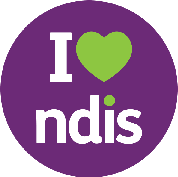The NDIS (National Disability Insurance Scheme) supports people with disability through funded services. The NDIS participant journey starts from applying for the NDIS to using your approved plan and beyond. In this guide, we’ll walk you through each stage – from the NDIS application process to planning meetings, understanding your NDIS plan, using your supports, and preparing for plan reassessment. Our aim is to explain each step in plain language so you know what to expect and how to get help along the way.
Step 1: Applying for the NDIS
Applying for NDIS funding begins with checking eligibility and submitting an Access Request. To be eligible, you generally must be under 65, an Australian citizen (or permanent resident), living in Australia, and have a disability that is likely permanent and substantially affects your ability to do daily activities. If you believe you meet these criteria, your local NDIS partner – a Local Area Coordinator (LAC) for adults or an Early Childhood Partner (ECP) for young children – can help you apply. They will assist in gathering the required documentation, such as proof of identity, residency, and reports from health professionals or therapists that describe how your disability affects you.
Gather any relevant reports or assessments that explain your support needs (e.g. doctor’s letters, therapy reports) and personal details (e.g. DOB, address). Your NDIS partner will help you fill in the Access Request form and submit the application. The NDIA reviews all information and usually makes an eligibility decision within 21 days. You can even start making connections with the community or mainstream supports while your application is pending.
Tips for a successful application: Be clear about the daily challenges you face due to your disability, and gather evidence from professionals who know you well (e.g. doctors, therapists, teachers). A thorough Access Request with good evidence speeds up the decision. Remember, your NDIS partner is there to guide you through this process and answer questions at any time.
Explore our services at Centre of Hope
Step 2: Your NDIS Planning Meeting
Once you’re approved as an NDIS participant, the next step is to create your NDIS plan in a planning meeting. At this meeting, you will meet with an NDIA planner who reviews and finalises your plan. You can bring a family member, friend, advocate or your Support Coordinator with you.
The planner will discuss your living situation, goals, supports, and review any evidence you provided. They will show you a draft of the plan and the total funding allocated. You’ll also talk about how you want your plan managed and when your next review might be.
What to prepare for your planning meeting:
- List of short-term and long-term goals
- Reports or letters from doctors, therapists, or schools
- Notes about current supports and providers
- Questions you want to ask about managing your plan
If you have a Support Coordinator, they can assist you in navigating this process. Learn more about what Support Coordination is and why it matters.
Step 3: Understanding Your NDIS Plan
After your planning meeting, you’ll receive your approved NDIS plan. This plan includes three funding categories:
1. Core Supports: Everyday activities, personal care, community participation.
2. Capacity Building Supports: Therapy, support coordination, training, and employment services.
3. Capital Supports: Assistive technology, home modifications.
You’ll also decide how to manage your funds:
- Self-managed: You pay and claim directly.
- Plan-managed: A registered Plan Manager pays providers on your behalf.
- NDIA-managed: The NDIA pays only registered providers directly.
To get the most from your plan, it’s important to understand the categories and how they relate to your goals. Your planner or support coordinator can help you track spending and make sure you’re using your plan effectively.
Step 4: Using Your NDIS Plan
Now that your plan is active, it’s time to begin using your supports. Here’s how:
1. Choosing Providers: Use the NDIS Provider Finder, ask your LAC or coordinator, or search locally. You can also work with both registered and unregistered providers (depending on your management style).
2. Budgeting Wisely: Use plan management tools to track spending and ensure your supports last the full plan period.
3. Getting Help:
- A Support Coordinator can help you connect with the right services, negotiate service agreements, and resolve issues.
- A Psychosocial Recovery Coach is available if you have a psychosocial disability, offering help tailored to mental health recovery.
Centre of Hope provides both Support Coordination and Psychosocial Recovery Coaching. Make a referral here or book an appointment to speak with our team.
Step 5: Monitoring and Plan Reassessment
Your NDIS plan is reviewed regularly to ensure it still meets your needs. This happens through:
Check-ins: Informal meetings (in person or over the phone) to assess your plan’s effectiveness.
Plan Reassessment: A more detailed review (usually annually) where you can:
- Reflect on your goals and achievements
- Identify what’s working and what isn’t
- Request changes to support types or funding levels
You don’t have to wait for a scheduled reassessment. If your needs change significantly, you can request a reassessment at any time.
Learn more about plan reassessments and review processes here
You’re Not Alone on the NDIS Journey
The NDIS participant journey can feel overwhelming, but you don’t have to do it alone. From your first application to managing your plan year after year, the right support makes all the difference. At Centre of Hope, we’re committed to helping participants navigate every stage with confidence.
Explore our NDIS services, make a referral, or book a meeting with our team today. You deserve a plan that works for you, your family, and your goals.
FAQs
1. How long does it take to get an NDIS plan?
Once you submit your application, the NDIA usually decides within 21 days. After that, a planning meeting is scheduled. The full process can take a few weeks to several months depending on complexity and documentation.
2. What should I bring to my planning meeting?
Bring your goals, evidence from health professionals, information about current supports, and any reports or assessments. It also helps to bring someone for support, such as a family member or your support coordinator.
3. Who helps me use my plan?
Your Support Coordinator or Psychosocial Recovery Coach helps you find providers, manage services, and make sure your funding is used effectively. LACs and Plan Managers can also offer guidance.
4. Can I change providers mid-plan?
Yes. You can stop using a provider and choose a new one at any time, subject to notice periods. Inform the NDIA or your coordinator so they can update your plan if needed.
5. What happens at a plan reassessment?
A reassessment reviews your progress, any changes in circumstances, and updates your goals and funding. It usually takes place every 12 months or when a change is requested.
Useful Resources:








